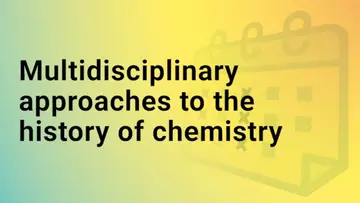The Metaphysics in Chemistry
- Robin Hendry (Durham University, United Kingdom)
Abstract
Can chemistry provide answers to big metaphysical questions? Modern chemists do not usually think of their science in that way, preferring to see it as a practical science, with modest and practical ambitions. Modern philosophers tend to agree with them, either because they think that the project of grounding metaphysical truths in empirical science is hopeless, or because they think that only such fundamental sciences as physics can answer questions of sufficient generality and abstractness to count as metaphysical. In my view these kinds of views seriously underestimate what chemistry can contribute to metaphysics.
Chemistry’s unmetaphysical view of itself predated the nineteenth century, but it was strengthened and entrenched by debates over the acceptability and significance of the atomic theory. Nevertheless, at the very same time chemistry seems to have developed answers to some rather ‘big questions.’ They include the following:
Is the great diversity of chemical substances we see around us composed of a finite stock of chemical elements, combined in myriad different ways?
Is there a unique kind of atom for every chemical element? Is that what makes a chemical element the element that it is, and not another one?
Does every chemical substance have a structure at the molecular scale, which determines its chemical behaviour? Is that what makes a chemical substance the element that it is, and not another one?
One might doubt whether answers to these questions count as metaphysical, and also whether they are really known to be true today. I argue that these doubts derive from arbitrary and confused limits on what counts, respectively, as metaphysics and as knowledge. I also argue that these questions would have been regarded as metaphysical before the nineteenth century.
The path from science to metaphysics is not without pitfalls, however. I compare and contrast the above cases with two failures: Pierre-Simon Laplace’s attempt to infer the truth of determinism from the success of Newtonian mechanics, and claims that Friedrich Wöhler’s synthesis of urea refuted vitalism and founded the subdiscipline of organic chemistry.
